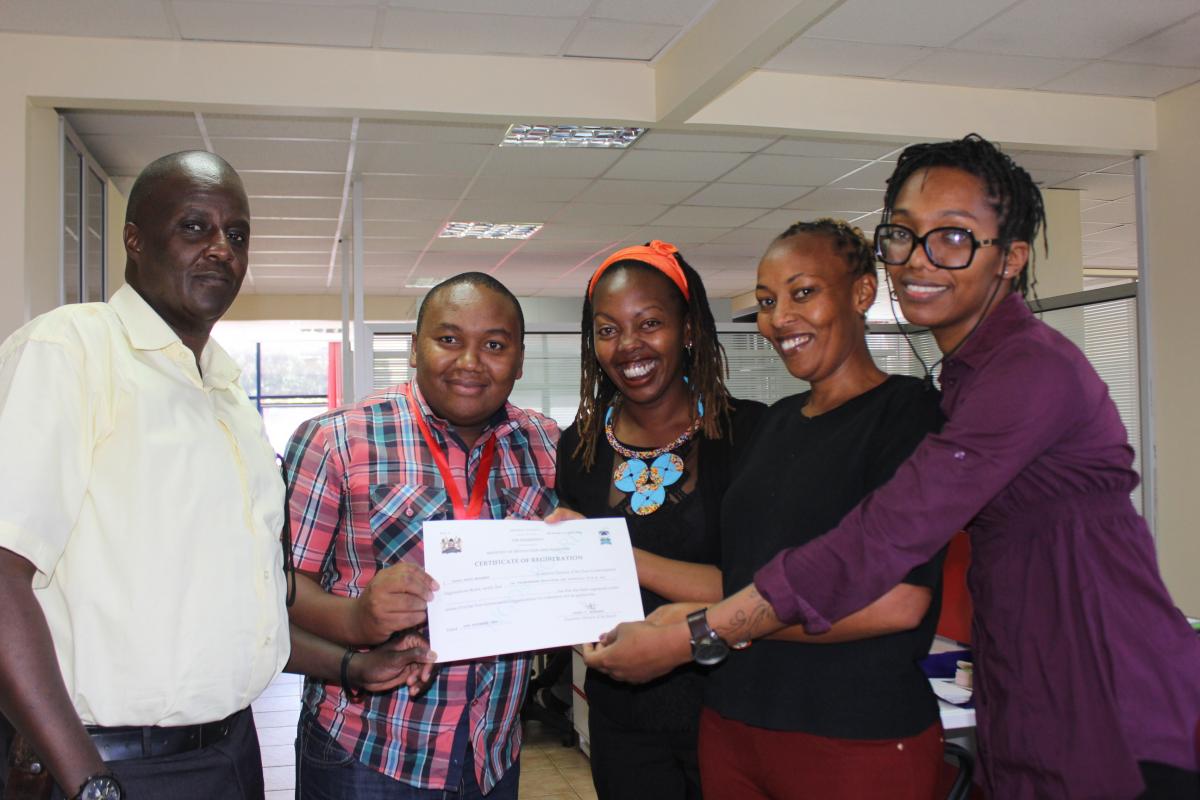The Transgender Education and Advocacy (TEA) organisation recently obtained official registration by the NGO Coordination board in Kenya, a step towards ensuring they operate legally without fear of intimidation.This journey started when a landmark ruling in 2014 by the High Court of Kenya ordered the NGO Coordination Board to register the group.
Hivos East Africa’s Communications Officer sat down with Audrey Mbugua to understand the transgender movement in Kenya and how the journey has been for them in respect to human rights.
SA: Tell me about yourself:
AM: My name is Audrey Mbugua, I am transgender, and sometimes I refer to myself as lady boy. I work with an organisation called Transgender Education and Advocacy (TEA), which I formed back in December 2008 to promote and defend the rights of transgender people. I am also a human rights defender.
SA: Would you walk me through your journey?
AM: It’s been a tough and sometimes rewarding journey. I can start by mentioning that I have received societal backlash due to the cause I believe in, which is integrating transgender people in society as ordinary citizens. Unfortunately, erratic incidences such as violence is something we deal with as transgenders, but we have been able to mitigate this by enabling safety measures such as ensuring we (transgenders) avoid high risk areas where you are most likely to be attacked.
Beyond the existing legal frameworks such as our constitution, I believe every one of us has secular values that we adhere to, like respecting each other. But even now, I feel the society has failed us in some way as we constantly have to prove we are not second-class citizens but human beings like any other person.
I have been at the forefront of advocating for transgender rights because no one was bold enough to do it. I have ended up losing my anonymity, personal security, opportunities for jobs, but I still soldier on since I know all this will have a ripple effect for the generations to come.
SA: What are some of your wins?
AM: Our greatest win has particularly been in the battle of Change of Particulars (CoP) in identity documents such as the national identity card and passport. We successfully challenged this in court in order to have the Registrar of Courts effect changes of names and photographs in the national identity cards of five transgender people.
We also received official registration by the NGO Coordination Board of Kenya to officially operate as an NGO, which was a long journey tracing back to 2014.
Further to this, we petitioned the Parliament of Kenya to make amendments to four bills (Health Bill, 2016; Education Curriculum, 2016; Kenya National Examination Council Amendment Bill) so that the resulting laws would be responsive to the needs of transgender people in the education and health Societies.
SA: Would you shed some light on the education component of your work?
AM: Our education focuses on two components: educating the transgender and cisgender (a term for people whose gender identity matches the sex that they were assigned at birth) to understand the society we live in and counter some of the negative pushback we get due to our gender identity. Most transgenders lack knowledge of ‘self’, which makes them vulnerable to manipulation. For cisgenders it’s generally enabling awareness about who transgender people are and how we can generally co-exist in a peaceful way.
SA: Tell me about your relationship with Hivos East Africa
AM: Hivos was one of the few bold partners willing to walk with us in this tough journey. With funding and support from them over the last few years we have built partnerships with several organisations through lobbying and advocacy.
Hivos East Africa has supported Transgender Education and Advocacy since 2013 to advance strategic litigation, especially regarding the decriminalisation of gender minorities. Hivos believes no person should be stigmatised and discriminated against based on their sexual orientation and gender identity.




